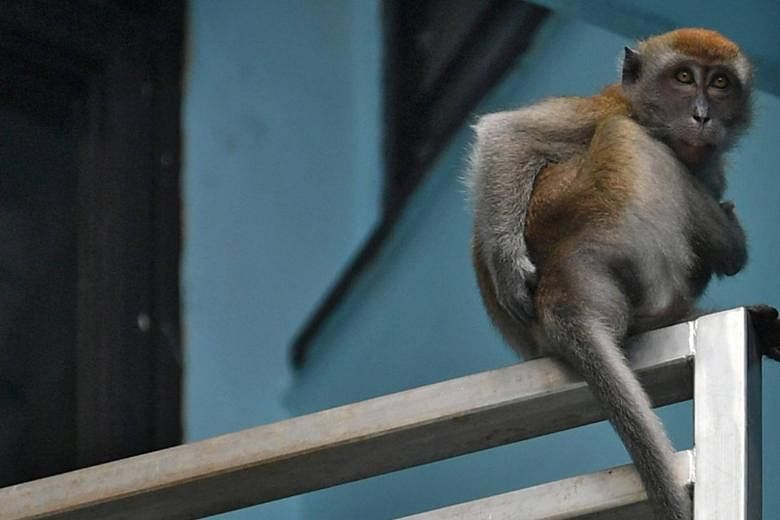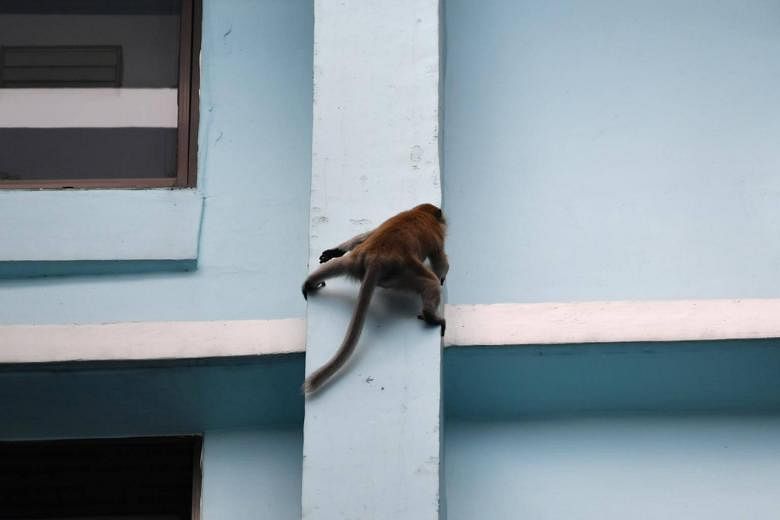SINGAPORE - The Bukit Panjang monkey that has been frightening residents and evading capture has finally been caught, the Agri-Food and Veterinary Authority (AVA) said in an update on Tuesday (May 2) night.
The monkey was captured on Tuesday by a joint team comprising members from AVA, wildlife rescue group Acres (Animal Concerns Research & Education Society) and Wildlife Reserves Singapore.
Ms Anbarasi Boopal, deputy chief executive at Acres, told ST that it took teamwork for the group of five to six to catch the female long-tailed macaque.
"We have been trying to dart the monkey when it was sighted over the past two weeks and today the team managed to," said Ms Boopal.
The primate, which is now in the care of Wildlife Reserves Singapore, had invaded residents' flats at Segar Road in Bukit Panjang last month, stealing food and even biting some people.
The situation escalated such that Holland-Bukit Timah GRC MP Mr Liang Eng Hwa held a townhall meeting with residents at Block 466A, Segar Road, on April 19.
There were five reported monkey attacks at the area in the third week of April, and AVA previously told The Straits Times that it had received about 160 pieces of feedback on monkey attacks and nuisance in the estate since October last year.
AVA had deployed five cameras at the estate and a nearby park to help catch the monkey, The New Paper reported on Tuesday.
The spokesman said the cameras were to give the AVA a better understanding of the monkey's movements, allowing for more targeted operations.
Ms Boopal said the situation "could have been avoided if the monkey was not fed by humans and conditioned to enter units".
AVA in its Facebook post on Tuesday reminded the public not to feed monkeys, as feeding alters their behaviour and causes them to become reliant on humans for food.
"You can also help to minimise the risk of monkey nuisance by keeping your windows and doors closed as much as possible, keeping food out of sight from the monkeys and practicing good food refuse management, such as double knotting garbage bags and disposing garbage in bins with secured lids," it wrote.
ST has contacted AVA for more information.




